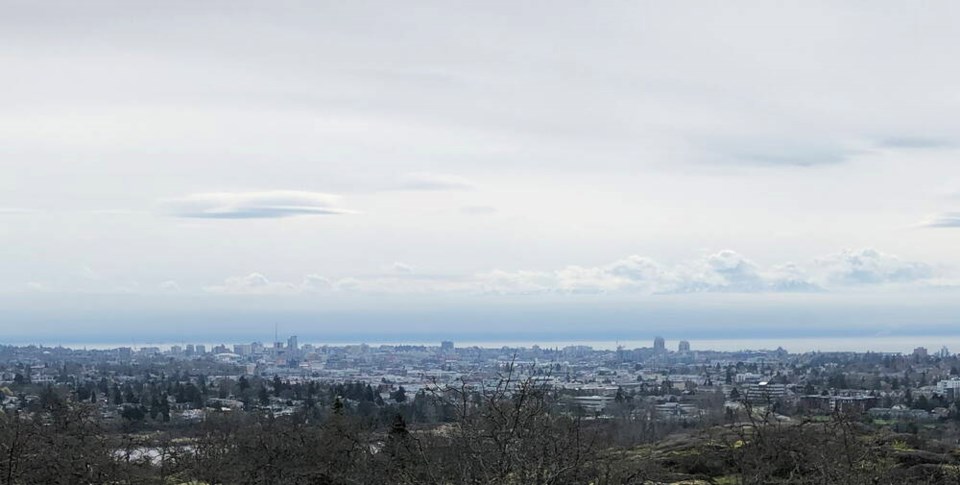Crushed by a bureaucratic burden, Vancouver Island’s largest sponsor of refugees is calling it quits.
The Island’s Victoria-based Anglican diocese, which has helped more than 500 people find new lives here since the Syrian crisis of 2015, says new federal requirements are so onerous that it can’t continue in its role.
That’s bad news for refugees, says Anglican Bishop Anna Greenwood-Lee, not just here but elsewhere in Canada where similar volunteer-driven groups are feeling the same pressures.
What’s really frustrating is that Ottawa appears to be messing needlessly with a system that has been working well for refugees and taxpayers alike.
“Why are you making it harder for us to do this work?” Greenwood-Lee asks. “Why are you making it harder, not easier?”
At the heart of the story is a program that since 1978 has seen more than 327,000 refugees come to Canada with the help of private sponsors such as faith groups, community organizations or small collections of friends. More than half of all arrivals over the past decade have come via that process.
The private sponsorships are done under the umbrella of what are known as sponsorship agreement holders — or SAHs — that through an agreement with the federal government take on the financial, legal and other responsibilities of getting the newcomers settled. Sometimes the SAHs — many of them faith-based, humanitarian or ethnocultural-based organizations — sponsor refugees on their own, and sometimes they provide expertise to smaller groups. It’s a great deal for all concerned, with refugees getting an instant support network of individuals who not only fundraise and provide them with housing, but help them integrate into their new communities, showing them how to look for work, get a library card, buy a bus pass, or whatever.
Vancouver Island has three sponsorship agreement holders: the Anglican diocese, the Inter-Cultural Association of Greater Victoria and the Cowichan Valley Intercultural and Immigrant Aid Society.
Except now the Anglicans are bowing out. They will see through the 290 refugees who are already in the pipeline under their auspices, but won’t apply to take on any more.
The decision came after Immigration, Refugees and Citizenship Canada in September presented agreement holders with a new set of guidelines to which they needed to adhere. The new standards, which are meant to protect the integrity of the private-sponsorship program, might have made sense in Ottawa but at ground level translate to tens of thousands of dollars in extra costs and piles of paperwork that are just too high for volunteers to take on.
Take the new requirement for an exhaustive annual financial audit.
The diocese already does a financial review every year, but it encompasses all that the church does, not just its refugee efforts, which comprise a single slice of a larger pie. The audit Ottawa wants is a different animal altogether, a major addition in both time and money for the diocese, which already spends $150,000 a year and a big chunk of staff time on its refugee work.
“This is just a step too far,” Greenwood-Lee says.
It’s painful to give up a role that has allowed refugees from dozen of countries to enjoy new lives, though. It’s frustrating to squander all the built-up expertise. “Churches are good at this work,” Greenwood-Lee says. “There’s a huge amount of social capital.”
The Canadian Refugee SAH Association, representing sponsorship agreement holders across Canada, is also worried. The group’s chair, Kaylee Perez, said that while it’s important for Ottawa to maintain the private-sponsorship program’s high standards, “this should not exclude SAHs who cannot meet its increasing administrative demands.”
“The over-professionalization of the [program] is a very real concern, especially when viewed through an equity and accessibility lens,” Perez wrote. “For this reason, the SAH Association continues to work with IRCC encouraging approaches to program monitoring and assurance that are less bureaucratic in nature and better aligned with the community-based, volunteer spirit of the program, towards the goal of achieving a balance in policy and practice that keeps the program open and accessible to those who need it the most.”
The Anglicans are talking to other faith groups about what is going on. Greenwood-Lee says the church will urge local members of Parliament to intervene. The public might be asked to contact MPs next month, too.
jknox@timescolonist.com
>>> To comment on this article, write a letter to the editor: letters@timescolonist.com



